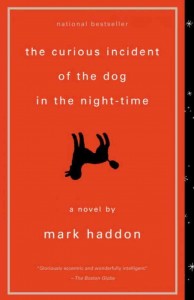 Just a few days ago, the Wilson County School Board in Tennessee voted 3-1 to removed Mark Haddon’s The Curious Incident of the Dog in the Night-Time from the school system’s approved reading list over the use of the F-bomb. Just this afternoon, CBLDF learned that the school board has overturned the ban.
Just a few days ago, the Wilson County School Board in Tennessee voted 3-1 to removed Mark Haddon’s The Curious Incident of the Dog in the Night-Time from the school system’s approved reading list over the use of the F-bomb. Just this afternoon, CBLDF learned that the school board has overturned the ban.
Unfortunately, the school board does not appear to be making the decision to support the right to read. Andy Humbles at The Tennessean reports:
Board policy allows the director of schools to review and reconsider the action taken by the board.
The reversal was taken because the school board wants to be sure no procedural violations occurred by Monday’s action and due to end of year projects being done that involved the book.
Humbles doesn’t have more to report, but it does appear that the board will be reviewing its policies and procedures and more books will be added to the approved reading list in the district.
The Curious Incident centers on a 15-year-old boy on the autism spectrum, who decides to investigate the murder of his neighbor’s dog. It is one of the few books to feature the first-person perspective of a protagonist who has a social disability, and it received multiple awards and critical acclaim. The book has been a fixture on reading lists around the country because of the unique perspective it offers. It was required reading at Mt. Juliet High School, Wilson Central High School, and Lebanon High School, but parents and students are able to select a replacement if they aren’t comfortable with the material.
During this week’s school board meeting, the issue of banning the book was added to the meeting agenda at the last minute under New Business. Most reports on the vote indicate that a formal complaint was not lodged against the book. Instead, the issue was brought up by a member of the board who claimed to have received several calls from concerned parents. The action the board took in banning Curious Incident appears to be unilateral, and given the late addition to the meeting agenda, it’s likely that few (if any) people were present to defend the book.
Banning the book in the first place wasn’t just foolish — it was unconstitutional. Depending on the outcome of the policy review, it’s possible that the ban may be revisited. One can hope that the school board will establish clear procedures and criteria for future book challenges. Ideally, those policies won’t make it possible for one person to propose — and succeed in attaining — future book bans.
We need your help to keep fighting for the right to read! Help support CBLDF’s important First Amendment work by visiting the Rewards Zone, making a donation, or becoming a member of CBLDF!